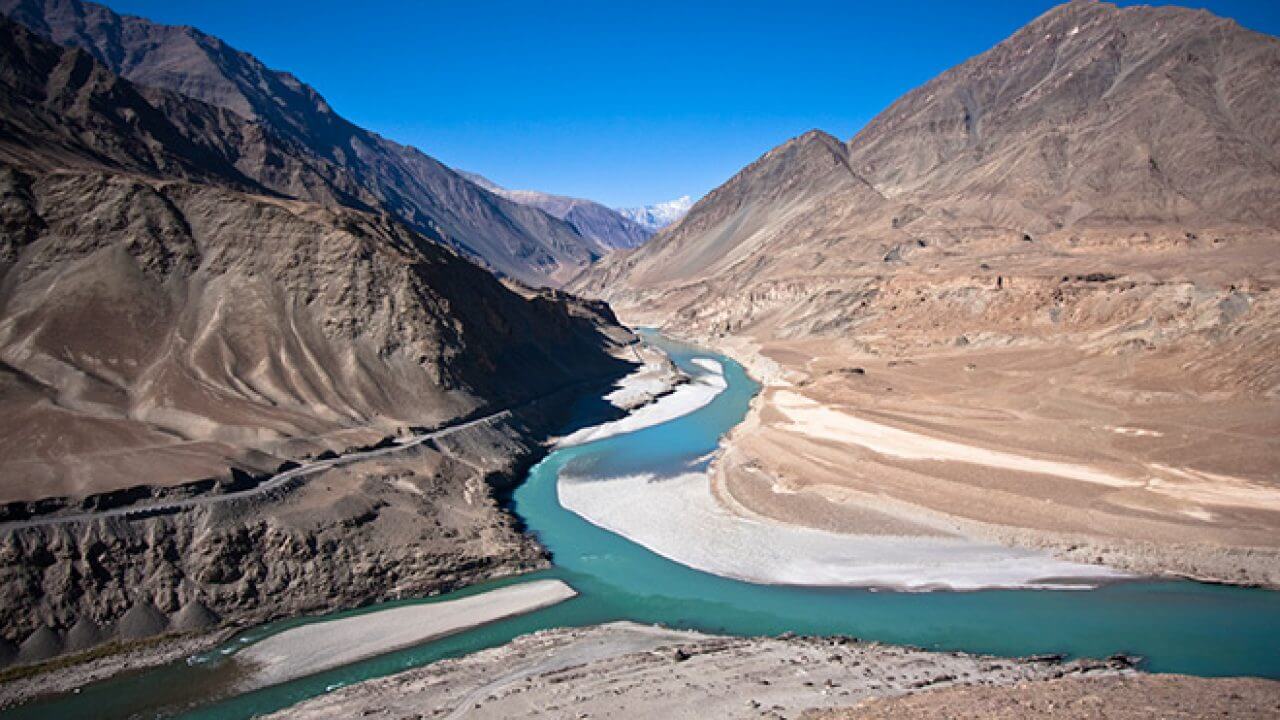India and Pakistan took part in the annual meeting of the Permanent Indus Commission (PIC) in New Delhi on Tuesday, in an effort to resolve several outstanding issues under the Indus Waters Treaty, including Islamabad’s objections to the designs of India’s hydropower projects on the Chenab River. The Indian delegation for the 116th summit of the PIC—which is expected to last two days—is being led by Pradeep Kumar Saxena, Commissioner (Indus), while the seven-member Pakistani side is headed by Syed Muhammad Meher Ali Shah, the country’s Commissioner for Indus Waters.
According to provisions under the Indus Water Treaty (IWT), both countries are required to meet at least once a year, alternately in India and Pakistan. However, the current round of discussions is being held for the first time in two and a half years. The last meeting of the commission was held in Lahore in August 2018, and the 2020 meeting was cancelled due to the COVID-19 pandemic.
The latest talks are the first to be conducted on the issue since New Delhi’s abrogation of Article 370—which granted special status to Jammu and Kashmir—and the division of the state into two union territories in August 2019. India has since authorised several hydropower projects in the region. Of these projects, Durbuk Shyok (19 MW), Shankoo (18.5 MW), Nimu Chilling (24 MW), Rongdo (12 MW), and Ratan Nag (10.5 MW) are in Leh, while Mangdum Sangra (19 MW), Kargil Hunderman (25 MW), and Tamasha (12 MW) fall under Kargil. Although Pakistan had been informed of these projects in advance, the issues attached to the projects are expected to come up in discussion during the meeting. Furthermore, Pakistan is also expected to raise objections on the design of Indian hydropower projects on the Chenab River, the waters of which are largely assigned to Pakistan under the IWT.
Moreover, the talks also come against the backdrop of a thaw in India and Pakistan’s bilateral relations, which suffered greatly after the 2019 Pulwama suicide bombing that subsequently resulted in a military standoff. Following this, the militaries of both countries renewed their commitment to “strictly” observe the 2003 ceasefire on the Line of Control (LoC) in Jammu and Kashmir only last month, which raised hopes that ties between the two countries can be further improved. The decision to adhere to the truce along the otherwise volatile LoC was the outcome of several back-channel contacts between the national security advisers (NSAs) of both countries.
More recently, Pakistani Prime Minister (PM) Imran Khan called upon India to take the first step towards an Indo-Pakistan friendship. The PM said that furthering peace in the region would also be highly beneficial for India, as it would provide it more undeterred access to Central Asia. In addition, speaking at an event hosted last month by the Air Force Asghar Khan Academy in Risalpur, Khyber-Pakhtunkhwa, Pakistani Army Chief General Qamar Javed Bajwa called for a peaceful resolution of the Jammu and Kashmir conflict between India and Pakistan and said that Pakistan is “firmly committed to the ideal of mutual respect and peaceful co-existence” and that “It is time to extend a hand of peace in all directions.”
And just today, Indian PM Narendra Modi wrote a letter to his Pakistani counterpart Imran Khan saying, “As a neighbouring country, India desires cordial relations with the people of Pakistan. For this, an environment of trust, devoid of terror and hostility, is imperative.”
In light of these developments, the current talks will set the mood for the future of the two neighbours’ bilateral relations.
India and Pakistan Hold Meeting of the Permanent Indus Commission After Two-Year Pause
The talks are aimed at resolving several outstanding issues under the Indus Waters Treaty, including Islamabad’s objections to the designs of India’s hydropower projects on the Chenab River.
March 24, 2021

SOURCE: ERIN WILSON/FLICKR
